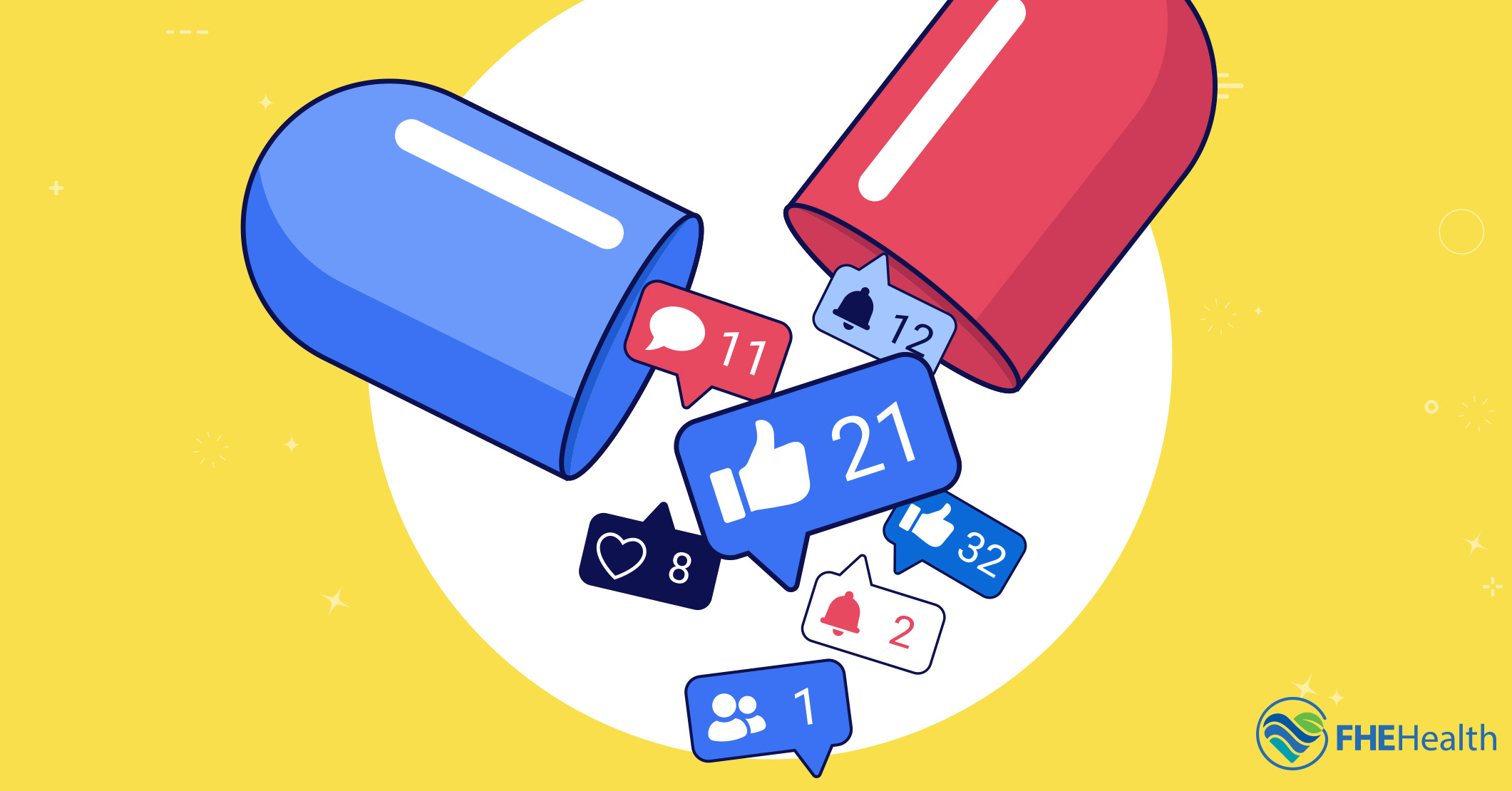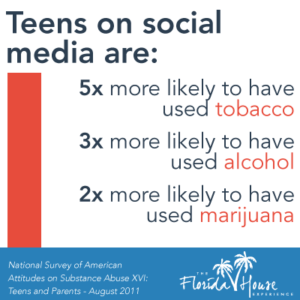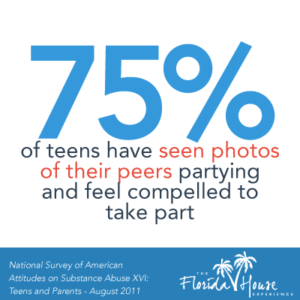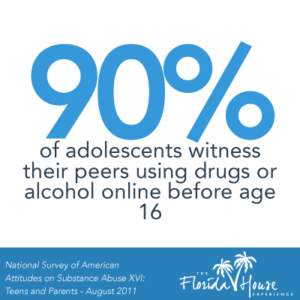
Drug and alcohol use is depicted everywhere in the media. These days, you can’t turn on the TV or go on the internet without seeing or reading about the use of drugs and alcohol. It’s on the news; it’s shown on TV shows; it’s discussed at length in print media and publications. It’s even shown in movies. For someone struggling with drug or alcohol addiction, it can be tough to go about daily activities without seeing it. Thanks to the popularity of social media, it’s even made its way to our favorite networking sites and apps. Unfortunately, because the depiction of drug and alcohol use is so common now, it’s left many in our society desensitized to the notion of drug and alcohol abuse. Let’s take a look at the correlation between drugs and the social media impact and how it can be both good and bad.
The Negatives Of Drug Addiction And Social Media
Technology has been advancing over the last 2 decades at a fast pace. Almost every area of an individual’s life is involved in some type of social media, such as Facebook, Instagram, X and many others. Go on your favorite platform and chances are you’ll come across images of drug use on social media involving alcohol or some other altering substance.
The danger with social media drug culture is the incomplete picture it delivers. Social media offers you a highlight reel of the best moments. It delivers a skewed perspective on others’ lives as well as the activities they’re participating in. While it might not seem like a big deal to you, imagine someone who has a substance abuse problem viewing those pictures. Seeing photos and videos posted by friends, loved ones, strangers and celebrities on social media showing alcohol or drug use can be a very bad thing. Peer pressure from images of people drinking and having a good time might make that person want to start using again. They might think, “I can have just one drink with the boys; what’s it going to hurt?” Unfortunately, for those addicted to drugs and alcohol, one time might be enough to make that person spiral out of control.
Going through addiction rehab can help you prepare to live alcohol-free, even when you see pictures of friends drinking or doing drugs. For the thousands in recovery, it’s important to actively remove certain people and accounts from your time line. Seeing images of people using alcohol or marijuana on a regular basis can wear you down over time and even affect you subconsciously.
While some people might have addiction in their family or have addictive personalities, many people don’t realize they have an addiction problem until they use a substance for the first time. So, that picture of everyone drinking and doing drugs could actually influence someone to try alcohol or drugs, which has the potential to cause addiction later on. All because they saw other people doing it, and it looked like a good time.
Youth also look up to musicians, actors and social media influencers and are often influenced to try drugs based on their social posts, music or online media. The drug culture is very prominent in rappers and musicians, who glamorize drugs like Xanax, marijuana, codeine, painkillers and binge drinking. However, when you listen to older musicians talk about their drug and alcohol use, they always talk about its destructive nature.
There’s also the issue of teenage influence. Children and teenagers are influenced greatly by what they see on social media. A child or teenager might see substance abuse online behavior and want to emulate that lifestyle because they see those people as role models. This can lead to alcohol dependency or even addiction at a young age.
The Positives of Drug Addiction and Social Media
When used the right way, social media can actually be a great resource to help you live a sober life. When it comes to the internet and social media, there are countless resources and people out there who want to help; you just have to find them. There are communities dedicated to sober living, as well as online support groups and message boards. There are even countless websites, just like this one, providing blogs and articles with vital information on how to get sober.
Approximately 8 out of every 10 adults in the United States use a video-based social media platform, such as TikTok or YouTube. Social media helps online counselors and mental health professionals advertise and reach more people so those with mental health conditions have a better understanding of what’s available. Online therapy, or teletherapy, is one way of receiving mental health counseling online. Readily available to anyone with an internet connection, online counseling provides help for those confined to their homes, including young adults.
The hashtag #mentalhealth on TikTok has received more than 20 billion searches as individuals look for convenient ways to deal with mental health issues. Other ways social media has a positive impact on mental health include:
- Relieving social isolation. Social media provides a way to remain in touch with friends and family, allowing individuals to connect through multiple platforms, including video chats and group hangouts.
- Inspire healthy lifestyle goals. Social media provides an excellent platform for lifestyle coaches, mental health professionals and health advocates to talk to audiences about the benefits of a healthy lifestyle. Sharing goals helps promote accountability and increases your chances of success, whether it involves weight loss or addiction recovery.
- Assist in medical research. By analyzing an individual’s social media interactions and posts, therapists and mental health professionals can use AI to diagnose depression and other mental health conditions. Early diagnosis leads to better treatment options.
- Building community support groups. Social media sites such as Facebook provide groups for those battling depression, anxiety, loneliness and even addiction. Peer groups help individuals realize they aren’t alone, providing an outlet to share feelings and information and gain hope.
Social media also provides you with a voice to ask for help and to help others. Had a bad day and can’t get to a meeting? Simply go online and find an online support group or forum and ask for help. Or maybe you don’t want your addiction to control your life anymore and want to get help. There are countless websites out there that can tell you about the recovery process and help you connect with the right detox and treatment center.
Are You Looking for Drug Addiction Treatment?
Are you on social media right now looking at pictures from last night and not remembering any of it? Maybe you’re looking through an old photo album on Facebook and not liking what’s looking back at you. No matter the reason, if you’re tired of letting drugs and alcohol control your life, it’s important to make a change before it’s too late. It’s also important to know that overcoming drug addiction isn’t something you should do on your own. Contact us today at FHE Health. We’ll show you how to live your life without your drug or alcohol of choice and create a recovery community that will be a perfect fit for you as well.









